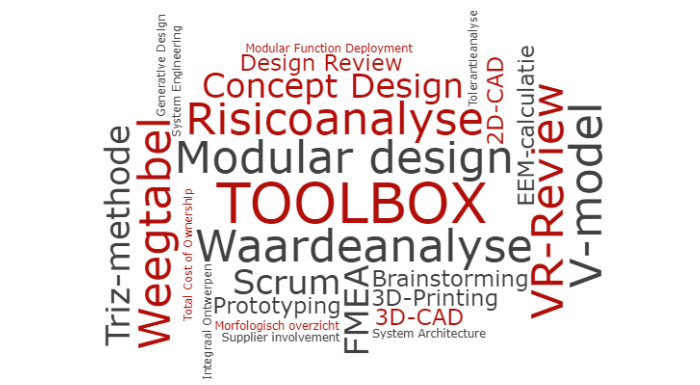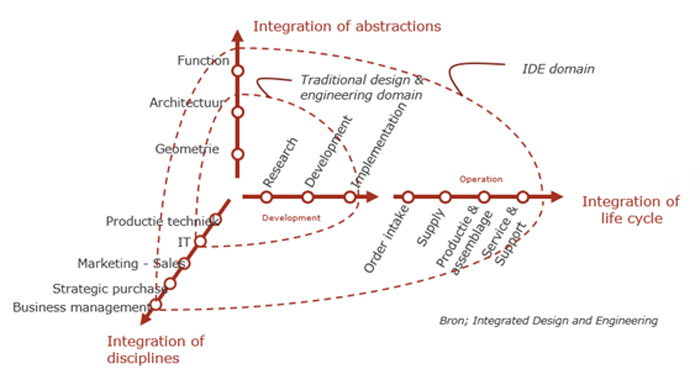
In a previous article, I wrote about the importance of the innovation roadmap in system development. It is the blueprint for development, testing and making ‘market-ready’ of innovative product platforms that meet various client-specific market demands.
One of the three axes of the roadmap is the development axis. In this article, I will explain what it is we do in this axis and which tools we deploy.
To organise system development in a smart way and implement it effectively, Post en Dekker have developed a roadmap that is made up of the axes Development, Acceptation and Project management.
The development part contains all development activities (specifying, designing, prototyping and testing) that are initiated to develop a system or a set of modules. In this stage, we first eliminate the biggest risks by looking closely at the functions and subfunctions. This way, we increase implementation success in the market.
The development stage is taken on integrally. This approach can be split up in three axes:
- Integration of abstractions: geometry, architecture and function;
- Integration of disciplines: production technique, IT, Marketing/Sales, purchase and business management
- Integration life cycle: development & series production, service

Post en Dekker have at their disposal all modern means to carry out a complete integral multidisciplinary trajectory. From specification to the realisation of prototypes and pilot runs. Below, you will find the most important tools necessary to get a good design.
- V Model
The V model is a way to specify in a structured manner and to validate the specifications. During the design trajectory, we pay just as much attention to the specifications that are part of the project definition (left), as to the way in which those specifications are tested and validated (right). Each level on the left side can be tested with a level on the right side. This way, the process is validated gradually and in a structured manner.
- 3D Printer, VR Review & Risk Analysis
The roadmap is aimed at eliminating risks and enhancing acceptation with the stakeholders. Technical risks are identified and developed in sprints to proof of concepts. For concept, basic and detail engineering, one can draw from an extensive set of design tools in order to make the development process run efficiently and effectively. 3D printing and testing of concepts in an early stage, digital product analyses and simulations by means of VR, are examples of this.
- Scrum / Agile
To limit risks and generate project rhythm, we work according to a scrum method, also called ‘agile’ approach. This shortens the time-to-market, something that is crucial nowadays for the successful introduction of developed products.
- Morphological overview
With more than 20 years of experience in System Development, Post en Dekker is now pretty experienced in function decomposition. Or, during the project, we break down the functionality into all sub functions and then we determine for the functions the operating positions and possibilities. By linking a solution to every function, we can put together concepts.
- System Architecture
The results of the research carried out, are translated into a new technology platform or module aimed at a specific market and application. On that platform, a modular system architecture is defined. This architecture with functional modules is in its turn translated into a product structure with physical modules which become available for a product configurator.
These 5 ‘tools’ are part of a much broader toolkit that is at the disposal of Post en Dekker.






